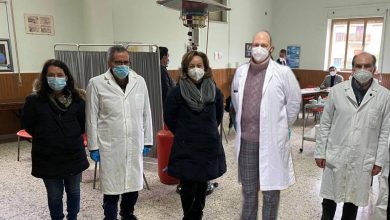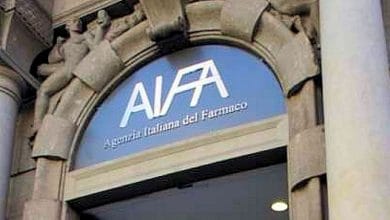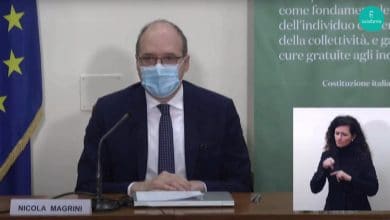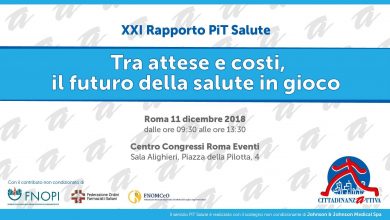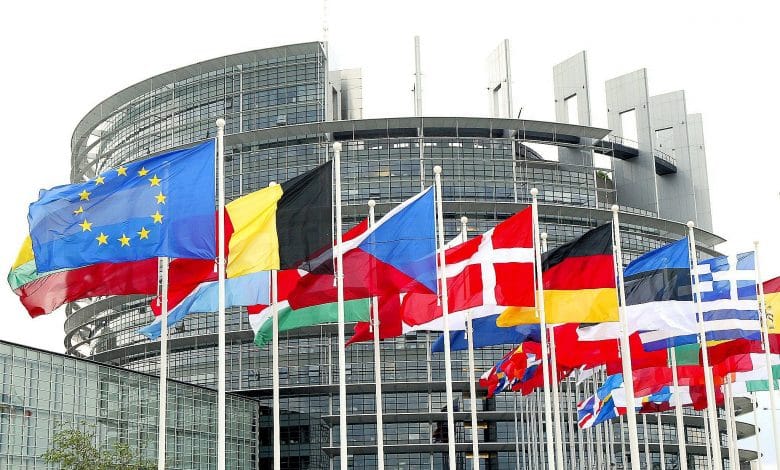
Juncker's decision to place pharmaceutical policy within a portfolio whose main mandate is to maximize the competitiveness of European industry could create situations of conflict. The pharmaceutical could become a co-ownership of the Commissioners of Industry and Health
Luca Marini wrote on 28 September 2014 – smartweek
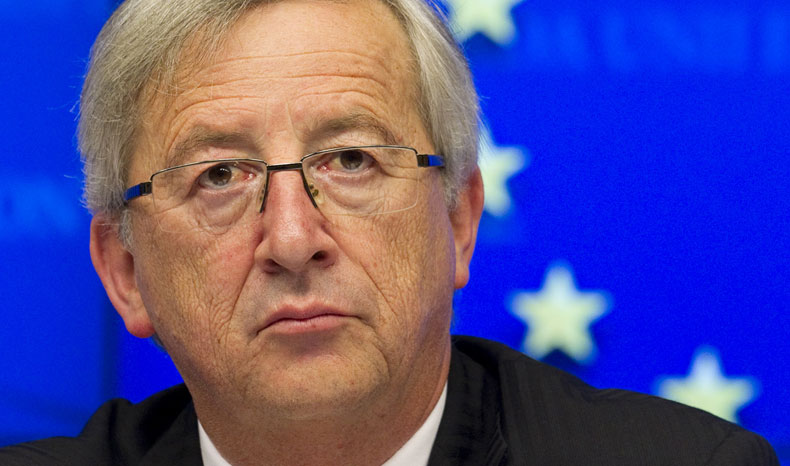 The new one will take effect in a month European Commission chaired by Jean Claude from Luxembourg Juncker. Except for some possible surprises in the obligatory passage of the parliamentary hearings, the women and men who will be part of the post-Barroso team are at the starting line.
The new one will take effect in a month European Commission chaired by Jean Claude from Luxembourg Juncker. Except for some possible surprises in the obligatory passage of the parliamentary hearings, the women and men who will be part of the post-Barroso team are at the starting line.
The decision to entrust public health dossiers to the new Commissioner responsible for Enterprise and Industry, Elżbieta Bieńkowska, aroused several moodiness. Emma Woodford, interim secretary general of the European Public Health Alliance (EPHA), publicly expressed the concern shared by some thirty sector associations. And indeed, Jean-Claude Juncker's decision to shift the governance of some key dossiers from the Commissioner responsible for health and food safety to the Commissioner responsible for enterprise and industry came as a bit of a bolt of lightning to clear sky. A table that is not easy to read which, attached to the official announcement of the appointment of the New Commissioners, is theonly official note which attests to this new arrangement, without, however, going into its reasons and objectives.
It is true that the health policy is not the subject of the specific competence of the Community institutions, and that in this field the principle of subsidiarity has good reason to be preserved, but many insiders believe that the new division of competences among the next European Commissioners is in danger of contradicting the need a coherent and unified health policy within the Union. Most of the criticisms are based on the fact that this decision has been made away from the spotlight and from confrontation with civil society and with other interested parties (patient associations, companies, scientific societies).
The more sensitive observers did not miss the fact that the new President Juncker announced the new sphere of competence of the Commissioners and of the Directorates General only after the end of the period available to MEPs to present their written questionsto be submitted to the new Commissioners during the next round of hearings.
 It is fair to note that it is not a question of a mere shifting of political responsibility for a certain dossier. The move of the Sanco B2 (Healthcare Technologies and Cosmetics), Sanco D5 (Medicinal Products and EMA) and Sanco D6 (Quality, Safety and Efficacy) Units from the former DG Sanco to the new DG Entreprise and Industry brings with it small earthquakes in a sector that over the years had found its balance. But above all it happens when on the desks of the officials and technicians of DG Sanco some important new regulations were in the pipeline which strongly affect the medical and diagnostic device manufacturers.
It is fair to note that it is not a question of a mere shifting of political responsibility for a certain dossier. The move of the Sanco B2 (Healthcare Technologies and Cosmetics), Sanco D5 (Medicinal Products and EMA) and Sanco D6 (Quality, Safety and Efficacy) Units from the former DG Sanco to the new DG Entreprise and Industry brings with it small earthquakes in a sector that over the years had found its balance. But above all it happens when on the desks of the officials and technicians of DG Sanco some important new regulations were in the pipeline which strongly affect the medical and diagnostic device manufacturers.
Emma Woodford is surprised: from the point of view of the Association it represents, this new organizational structure risks diminishing the attention of the European institutions for the public health and social interest, in favor of a greater sensitivity for the reasons of profit in the delicate regulatory processes that are managed at European level, in particular the procedures for the marketing authorization of new drugs headed by the EMA.
The EPHA spokeswoman is particularly concerned about the impact that this new division of responsibilities could have on the EU's operational capabilities in the unfortunate hypothesis that delicate health emergencies reach the Continent (see Ebola).
Expertise in the area of health technologies and pharmaceutical policy had been transferred to a Cad hoc commissioner in 2009, precisely to facilitate a coordinated and widespread response to the emergency of type H1N1 influenza A. The progressive affirmation of an extremely competent dedicated technical-administrative structure had also made it possible to increasingly harmonize the pharmaceutical and health policies of the main Member States. This happened not so much in compliance with prescriptive rules, but by virtue of a beneficial driving effect on some particularly sensitive issues, on which the individual national health authorities have willingly followed in the footsteps set by Brussels, thus relieving their own structures of various tasks regulatory.
 The new Commissioner for Health and Food Safety, Vytenis Andriukaitis, will therefore find itself deprived of some fundamental competences to pursue its statutory political mission, namely that of protecting the well-being and health of all those living in Europe. Medicines and access to safe treatments are a key component of public health systems and in many Member States they account for a large share of public expenditure, especially when it comes to innovative medicines.
The new Commissioner for Health and Food Safety, Vytenis Andriukaitis, will therefore find itself deprived of some fundamental competences to pursue its statutory political mission, namely that of protecting the well-being and health of all those living in Europe. Medicines and access to safe treatments are a key component of public health systems and in many Member States they account for a large share of public expenditure, especially when it comes to innovative medicines.
Juncker's decision to place pharmaceutical policy within a portfolio whose primary mandate is to maximize the competitiveness of European industry could create situations of latent conflict between the various stakeholders in the sector.
We'll see how it will materialize right away collaboration between the two General Managements who will share the responsibility of defusing this type of conflict as much as possible, always bearing in mind that, in these times of extreme economic uncertainty and eager technological progress, "Health is important". Because health is everything: it's business, technology, but above all culture.
EUROPEAN PARLIAMENT/ Risk of crossfire, Junker thinks of adjustments
Saturday, September 27th, 2014 – Online News
 In the last ten years, from the incautious Buttiglione to the unprepared Jeleva, the "trust" in the European government teams has never gone smoothly. And a crossfire is also being prepared for Jean Claude Juncker's team in the hearings that will begin next Monday before the commissions of the European Parliament.
In the last ten years, from the incautious Buttiglione to the unprepared Jeleva, the "trust" in the European government teams has never gone smoothly. And a crossfire is also being prepared for Jean Claude Juncker's team in the hearings that will begin next Monday before the commissions of the European Parliament.
In the intense negotiations of the last two weeks, critical issues have emerged regarding the Hungarian Tibor Navracsis destined for 'Education, culture, youth and citizenship, for the Slovenian vice-president for the energy union Alenka Bratusek, for the British Lord Jonathan Hill for financial services and the union banking, for the Maltese Karmenu Vella at 'Environment, maritime affairs and fishing. Authoritative parliamentary sources testify to "growing nervousness" in the cabinets of the new commissioners. "They are restless", "there are those who would like the questions first", they say.
But it will be the hearing of the Spanish 'popular' Miguel Arias Canete proposed in 'Climate Action and Energy' that will test the stability of the 'grand coalition' EPP-S&D-Alde which supports Juncker. Contested by the Greens, the Left, but also by the Alde and by the Socialists, the Spaniard may not make it. And the exams of the socialists for Katainen and Hill and those of the popular and liberals for Moscovici are also announced as "hard". In popular and socialist circles, on balance we don't expect upheavals.
 Tense hearings yes, but in the end "no one is really at risk" say sources in both the EPP and the S&D. After two weeks of negotiations, meetings and negotiations between Juncker and the commissioner candidates, the president-elect of the Commission began yesterday to defuse some of the most dangerous mines, making it known, for example, that Hill will not be responsible for banker bonuses. In the next few days he could decide to correct the shot on some portfolios: Navracsics, representative of the Orban government, could lose the title 'Citizenship, while the pharmaceutical could become a co-ownership of the Commissioners of Industry and Health.
Tense hearings yes, but in the end "no one is really at risk" say sources in both the EPP and the S&D. After two weeks of negotiations, meetings and negotiations between Juncker and the commissioner candidates, the president-elect of the Commission began yesterday to defuse some of the most dangerous mines, making it known, for example, that Hill will not be responsible for banker bonuses. In the next few days he could decide to correct the shot on some portfolios: Navracsics, representative of the Orban government, could lose the title 'Citizenship, while the pharmaceutical could become a co-ownership of the Commissioners of Industry and Health.
The tension in these hours is still high. The responses to the written questionnaires were reassuring but not convincing. In particular those of the tanker Canete on the conflict of interest. While Moscovici has made promises as a "hawk" of rigor and Dombrovskis as a progressive. And a liberal like the French Sylvie Goulard expresses all the discontent of the center-right towards the "weak" compatriot who as a former minister of the economy "didn't respect the rules".
Not to mention the stories that so far have not crossed national borders, such as the accusations of discrimination against the Irishman Hogan or the investigation into the 100,000 euros distributed by Moscovici to relatives and friends for the creation of a book. The Ppe could retaliate against the French in the event of Canete's rejection.
The rejoinder could be the S%D grilling for Katainen, with the support of the far left and Eurosceptics. A scenario in which national political interests will also count. Among the socialists, for example, the Spaniards of the PSOE but also many Pds such as Cofferati or the Civatians are ready for dissidence.
The group leader Gianni Pittella, given to be in frequent and appreciated contact with Palazzo Chigi and Matteo Renzi, has obtained some guarantees from Juncker. In particular, the guarantee that the 300 billion "will be fresh money". He does not want to jeopardize the stability of the grand coalition but underlines that "it is not yet enough". And he calls for "the launch of the investment plan by the end of November", warning that "other issues remain to be clarified" and "the battle is still long".
Drugs, not commercial products
Silvio Garattini and Vittorio Bertele', of theMario Negri Institute of Milan, have made public a tough stance on the change of status of the EMA decided by the newly established European Commission. Here is a summary; the text in its entirety can be consulted on site.
One of the first moves of the new European Commission is the unexpected return of the EMA under the jurisdiction of the Directorate of Industry. The Emma she had been under that jurisdiction since her birth; then it had taken over 15 years to convince the Commission of the political inappropriateness of that location: medicines are not comparable to any other consumer good and, leaving the EMA under Industry, the Commission gave the impression of favoring the commercial interest over that of patients and public health.
Finally, under the Barroso presidency, the Commission had moved the EMA to the Directorate of Health and Consumers. Not that things have changed much at all. The EMA continues to approve drugs that often have little documentation of efficacy for a clinical benefit only supposed on the basis of surrogate evidence. Furthermore, new drugs are often approved on the basis of their comparison with placebo or their non-inferiority to already available drugs.
The return to the past will certainly not facilitate the long-awaited reconversion of the EMA to a role truly inspired by the primary interest of patients and public health. It will serve to further widen the penalty shirts, promoting all those measures, from conditional approval to adaptive licensing, which allow you to quickly approve immature, high-cost but low-value-added products.
Wanting to protect industry and promote the economy is lawful and worthy, but only if it doesn't conflict with the primary interest of health and our precious NHS.
![]() September 29, 2014
September 29, 2014

